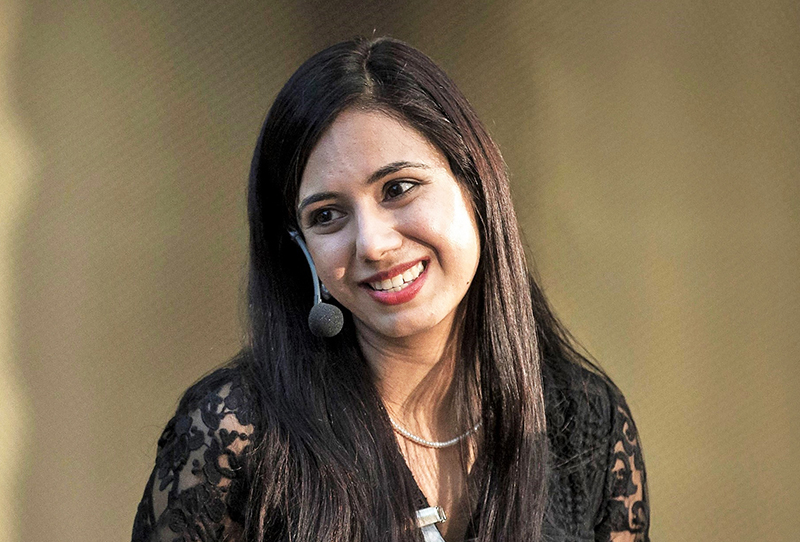
Jasdeep, a public international lawyer.
The clerkship was the tipping point to find my purpose: using law as a tool to work for the most vulnerable communities, who often face the brunt of climate change, water scarcity, violent conflicts, and rapid urbanisation…
I applied for the BCL at Oxford barely ten minutes before the deadline, a decision I definitely owe to serendipity. I had little hope that I would get second time lucky, having passed on my first offer to study law at Yale; however I hit the bullseye, not just by being accepted again, but by receiving the Salve Scholarship, which I applied for on the advice of an Exeter alumnus. These two wonderful outcomes highlighted certain Exonion advantages. First, Exeter supports truly deserving students, and invests in international talent and diversity. Second, Exeter’s alumni network is solid, with people who genuinely help each other in their professional and personal pursuits.
I remember Exeter as a safe space, where I explored abstract legal concepts in the comfort of a warm college library, laughed with students from across the world (including watching India win the cricket World Cup), enjoyed High Table dinners, and attended MCR bops. I vividly remember being influenced by the vision that Rector Frances Cairncross outlined for Exeter, her enduring support for students, and the wonderful Christmas lunch she hosted at her house. Perhaps the significance of being at Exeter most hit me when my extended family and my Judge visited from around the world – they all fondly remember the College tour, High Table dinner, tea in the MCR, and the majestic view of the Bodleian.
My venture into international development originates at Oxford. The BCL gave me the opportunity to discern the foundations of legal theory, as well as an appreciation of comparative and international environmental, human rights, and public law. While I was at Exeter, alumnus Justice Aarif Barma (1978, Jurisprudence) from the Hong Kong High Court offered a summer clerkship in his chambers to an Exeter law student. I was fortunate enough to be selected, supported by Exeter’s international development award. This clerkship was the tipping point to find my purpose: using law as a tool to work for the most vulnerable communities, who often face the brunt of climate change, water scarcity, violent conflicts, and rapid urbanisation.
It’s been almost a decade in international development. I’ve had the opportunity to work across five continents: for the United Nations; with the World Bank in the Nile Basin; with Oxfam as policy lead for South Asia transboundary waters; for the OECD in its flagship water security project; for the German Foreign Office on the refugee crisis and climate change; and with the Home and Justice Ministries of India on judicial reforms and constitutional design. It’s both humbling and gratifying to receive recognition as an expert in my area, which has given me the voice to present my work to a global community. Perhaps most satisfying are the opportunities to engage with young minds through teaching assignments and alumni networks (including that of Exeter), where I can share my ongoing journey with them.
My career involves frequently travelling to countries that can be remote, with work that’s sometimes emotionally exhausting. I have felt much comforted with the presence and hospitality of Exeter and Oxford alumni worldwide. I continue to be amazed by the connection between Exonians, the doors that can open, and the common values which bind us. I have been hired by an Oxford alumnus to teach students in Wellington; have been invited by the widow of an Exeter alumnus for dinner and reminiscing in Nairobi; and have sat on a high level panel with an Oxford academic in a UN climate change conference. More recently, when wanting career guidance, I have been delighted to have various distinguished Exeter alumni offer advice, for which I owe gratitude to the Exeter careers and alumni relations team.
As an Asian woman of colour working in senior leadership positions in the development sector, I am frequently asked how I have had access to these privileged and rare opportunities. Over the years, as I have met people from different cultures and travelled the world, I am more certain of my answer – trust matters, and so does the network. I have been the product of a heavily subsidised world-class education, including at Oxford when Exeter took its chance on me. Guided by the trust imposed in me and supported by the Exonian network, it is now my responsibility to at least make an attempt to inspire a few students and young alumni of Exeter.
